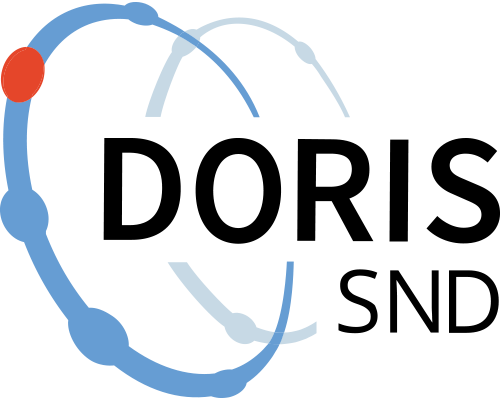ISSP 2003 - National identity II: Sweden
https://doi.org/10.5878/002400
This is the Swedish part of the 2003 'International Social Survey Program' (ISSP), and it is the second time ISSP focuses on national identity. The questions on national consciousness and national identity include: Identification with the town, the city, the region, the nation and with the respective continent; most important characteristics for national identity; identification with one's own nation and national pride (scale); perceived pride in the democracy of the country, the political influence of the country in the world, the economic achievement, the social security system, the scientific achievements, the achievements in sports, the achievements in arts or literature, the armed forces, the history and equal rights of all social groups in society; preference for protective duty to support the national economy; attitude to the right of international institutions to enforce solutions to be accepted nationally; attitude to enforcing national interests regardless of evoking conflicts with other countries; rejection of acquisition of land by foreigners in one's country; preference for national films in national television stations; damage done by large international companies to the local business; attitude to free trade; attitude to follow the decisions of international organisations even if the local government does not agree with them; international organisations take away too much power from the country; availability of worldwide information as a benefit of the internet; importance of sharing national customs and traditions to achieve full nationality; attitude to government support of national minorities to preserve their customs and habits; preference for assimilation of minorities or retention of their identity; hostility to foreigners and prejudices against immigrants (scale); attitude to a reduction of immigration of foreigners; respondents citizenship; citizenship of parents at birth of respondent; birthplace or citizenship of parents should allow naturalization of children; same rights for citizens and legal immigrants; attitude towards stronger measures regarding illegal immigrants; languages spoken at home; perceived ethnic affiliation and strength of this feeling; advantageousness of membership of the country in the EU; benefits from EU-membership; attitude towards a powerful EU-government.
Demographic variables include sex; age; marital status; steady life-partner; years in school, current employment status; current employment status of spouse; hours worked weekly; occupation of respondent and spouse (ISCO-88); respondent and spouse working for private, public sector or self-employed; supervisor function; union membership; household size; family income; respondents earnings; household composition; self-placement on a left-right continuum; party preference; vote last election; religious denomination; frequency of church attendance; self-placement on a top-bottom scale; region; town size, rural or urban region; ethnicity or nationality.
Purpose:
ISSP aims to design and implement internationally comparable attitude surveys. The study in 2003 investigating National Identity.
Data files
Data files
Documentation files
Documentation files
Citation and access
Citation and access
Data access level:
Creator/Principal investigator(s):
- Jonas Edlund - Umeå University - Department of Sociology
- Stefan Svallfors - Umeå University - Department of Sociology
Research principal:
Data contains personal data:
No
Citation:
Language:
Method and outcome
Method and outcome
Data collection - Self-administered questionnaire: Paper
Data collection - Self-administered questionnaire: Paper
Geographic coverage
Geographic coverage
Administrative information
Administrative information
Topic and keywords
Topic and keywords
Relations
Relations
Publications
Publications
Versions
Versions
Metadata
Metadata
Versions
Versions
